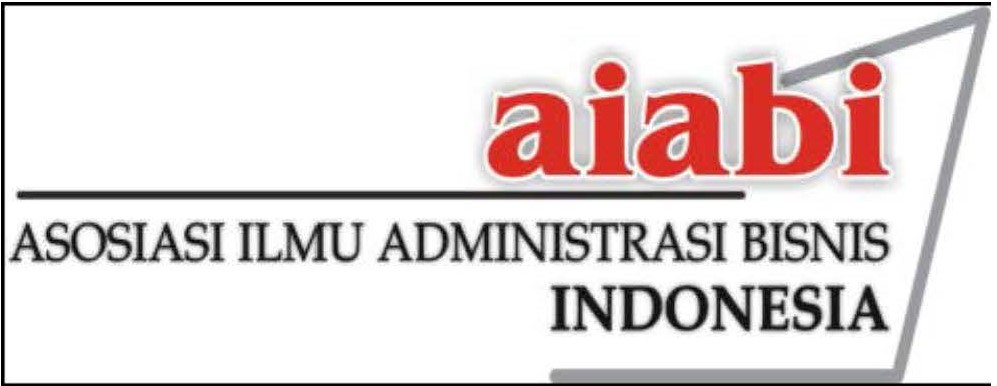SERVANT LEADERSHIP DAN KINERJA ORGANISASI STUDY SISTEMATIK LITERATUR REVIEW
Abstrak
Research on servant leadership is interesting to study, because it involves virtue, ethics, morals and ideal leadership. The results of the discussion of scientists gave birth to the type of leadership in organizational theory that developed. Scholars debate the theory of servant leadership in an organizational context. The main concern is considered suitable, worthy, and valuable for organizational success, because the characteristics of servant leadership focus on listening, empathy, healing, awareness, persuasion, conceptualization, foresight, openness, commitment to growth, and building community, which are prerequisites for organizational progress and success. . The purpose of this study is to identify servant leadership theory based on empirical studies, involving population and sample sizes, the results of which show its influence on organizational goals. The analysis method uses a Systematic Literature Review (SLR) to assess how it works, its implementation and its influence on organizational dynamics and performance. The process of skinning from the population to the end of 35 studies in empirical studies revealed servant leadership theory: generally accepted in the organizational context; able to improve organizational performance; not suitable to be practiced in certain fields; and can contribute to organizational goals and shared success. This study contributes to the methodology of the SLR approach to organization and leadership, highlighting and mapping the influence and workings of servant leadership by looking at new research topics.
Penelitian tentang servant leadership menarik dikaji, karena menyangkut pada kebajikan, etika, moral dan kepemimpinan ideal. Hasil diskusi ilmuan melahirkan tipe kepemimpinan dalam teori organisasi yang berkembang. Para ilmuan memperdebatkan teori servant leadership dalam konteks organisasi. Perhatian utama dinilai cocok, layak, dan berharga untuk kesuksesan organisasi, karena karakteristik dari servant leadership fokus pada mendengarkan, empati, penyembuhan, kesadaran, persuasi, konseptualisasi, kejelian, keterbukaan, komitmen untuk pertumbuhan, dan membangun komunitas, menjadi syarat kemajuan dan kesuksesan organisasi. Tujuan penelitian ini mengidentifikasi teori servant leadership berdasarkan studi empiris, melibatkan ukuran populasi dan sampel, hasil yang menunjukkan pengaruhnya terhadap tujuan organisasi. Metode analisis menggunakan Systematic Literature Review (SLR) guna menilai cara kerja, penerapan dan pengaruhnya terhadap dinamika dan kinerja organisasi. Proses skinning dari populasi sampai akhir dari 35 penelitian pada studi empiris diungkapkan teori servant leadership: berlaku umum dalam konteks organisasi, mampu meningkatkan kinerja organisasi, tidak cocok dipraktikan pada bidang tertentu, dan dapat membantu tujuan organisasi dan kesuksesan bersama. Studi ini berkontribusi pada metodologi dengan pendekatan SLR bidang organisasi dan kepemimpinan, menyoroti dan memetakan pengaruh dan cara kerja servant leadership dengan melihat topik penelitian baru.
Kata Kunci
Teks Lengkap:
PDFReferensi
Bass, B. M., & Bass, B. M. (2000). Organizational Studies The Future of Leadership in Learning Organizations. https://doi.org/10.1177/107179190000700302
Bernadin, H. J., & Russel, J. E. A. (2013). Human Resource Management: An Experimental Approach. Singapore: McGraw Hill.
Chiniara, M., & Bentein, K. (2016). Linking servant leadership to individual performance : Differentiating the mediating role of autonomy , competence and relatedness need satisfaction. The Leadership Quarterly, 27(1), 124–141. https://doi.org/10.1016/j.leaqua.2015.08.004
Crawford, J. A., & Kelder, J. (2018). Do we measure leadership e ff ectively ? Articulating and evaluating scale development psychometrics for best practice. The Leadership Quarterly, July, 1–12. https://doi.org/10.1016/j.leaqua.2018.07.001
Ebener, D. R., & Connell, D. J. O. (2010). How Might Servant. 20(3), 315–335. https://doi.org/10.1002/nml
Ehrhart, M. G. (2002). Leadership And Procedural Justice Climate As Antecedents Of Unit-Level Organizational Citizenship Behavior.
Eva, N., Robin, M., Sendjaya, S., Dierendonck, D. Van, & Liden, R. C. (2019). Servant Leadership : A systematic review and call for future research. The Leadership Quarterly, 30(1), 111–132. https://doi.org/10.1016/j.leaqua.2018.07.004
Farling, M. L., Stone, A. G., & Winston, B. E. (n.d.). Leadership : Setting the Stage for Empirical Research.
Hu, J., & Liden, R. C. (2011). Antecedents of Team Potency and Team Effectiveness : An Examination of Goal and Process Clarity and Servant Leadership. 96(4), 851–862. https://doi.org/10.1037/a0022465
Irving, J. A., & Longbotham, G. J. (2006). Team Effectiveness and Six Essential Servant Leadership Themes : 1999.
Kumar, P., Sharma, A., & Salo, J. (2019). A bibliometric analysis of extended key account management literature. Industrial Marketing Management, 82(July 2018), 276–292. https://doi.org/10.1016/j.indmarman.2019.01.006
Lee, A., & Carpenter, N. C. (2017). Seeing eye to eye : A meta-analysis of self-other agreement of leadership. The Leadership Quarterly, June, 0–1. https://doi.org/10.1016/j.leaqua.2017.06.002
Li, P., Sun, J., Taris, T. W., Xing, L., & Peeters, M. C. W. (2020). Country differences in the relationship between leadership and employee engagement : A meta-analysis. The Leadership Quarterly, August, 101458. https://doi.org/10.1016/j.leaqua.2020.101458
Liu, Z., Venkatesh, S., Elaine, S., & Riggio, R. E. (2020). Leader development across the lifespan : A dynamic experiences-grounded approach. The Leadership Quarterly, December 2018, 101382. https://doi.org/10.1016/j.leaqua.2020.101382
Parris, D. L., & Peachey, J. W. (2013). A Systematic Literature Review of Servant Leadership Theory in Organizational Contexts. Journal of Business Ethics, 113(3), 377–393. https://doi.org/10.1007/s10551-012-1322-6
Rahayani, Y. (2019). Servant Leadership : Educational Institution.4(February). https://doi.org/10.20885/jee.vol4.iss1.art7
Rego, A., Owens, B., Leal, S., Melo, A., Pina, M., Gonçalves, L., & Ribeiro, P. (2017). How leader humility helps teams to be humbler , psychologically stronger , and more effective : A moderated mediation model ☆. The Leadership Quarterly. https://doi.org/10.1016/j.leaqua.2017.02.002
Schneider, B. (1987). The People Make The Place.
Shannon, J. R. (1999). Sports marketing : an examination of academic marketing publication.13(6), 517–534.
Shepherd, N. G., Hodgkinson, G. P., Mooi, E., Elbanna, S., & Rudd, M. (2019). Political Behavior Does Not (always) Undermine Strategic Decision-Making: Theory And Evidence. Long Range Planning, 101943. https://doi.org/10.1016/j.lrp.2019.101943
Shin, H. W., Picken, J. C., & Dess, G. G. (2017). ScienceDirect Revisiting the learning organization : How to create it. Organizational Dynamics, 2016. https://doi.org/10.1016/j.orgdyn.2016.10.009
Spears, L. C. (2004). Spears-2004-Leader_to_Leader. 7–11. n
Sturm, R. E., Vera, D., & Crossan, M. (2016). The entanglement of leader character and leader competence and its impact on performance. The Leadership Quarterly. https://doi.org/10.1016/j.leaqua.2016.11.007
Thorpe, R., Holt, R., & Macpherson, A. (2005). Using knowledge within small and medium- sized firms : A systematic review of the evidence. 7(4), 257–281.
Walumbwa, F. O., Hartnell, C. A., & Oke, A. (2010). Servant Leadership , Procedural Justice Climate , Service Climate , Employee Attitudes , and Organizational Citizenship Behavior : A Cross-Level Investigation. 95(3), 517–529. https://doi.org/10.1037/a0018867
Weed, M. (2005). Forum : Qualitative Social Research " Meta Interpretation ": A Method for the Interpretive Synthesis of Qualitative Research 1 . Interest in Research Synthesis. 6(1).
Zheng, X., Yin, H., & Liu, Y. (2019). The Relationship Between Distributed Leadership and Teacher Efficacy in China: The Mediation of Satisfaction and Trust. Asia-Pacific Education Researcher. https://doi.org/10.1007/s40299-019-00451-7
Zhu, J., Jiwen, L., Zhu, L., & Johnson, R. E. (2018). Visualizing the landscape and evolution of leadership research. The Leadership Quarterly, June, 1–18. https://doi.org/10.1016/j.leaqua.2018.06.003
DOI: https://doi.org/10.24198/adbispreneur.v7i1.36541
Refbacks
- Saat ini tidak ada refbacks.









